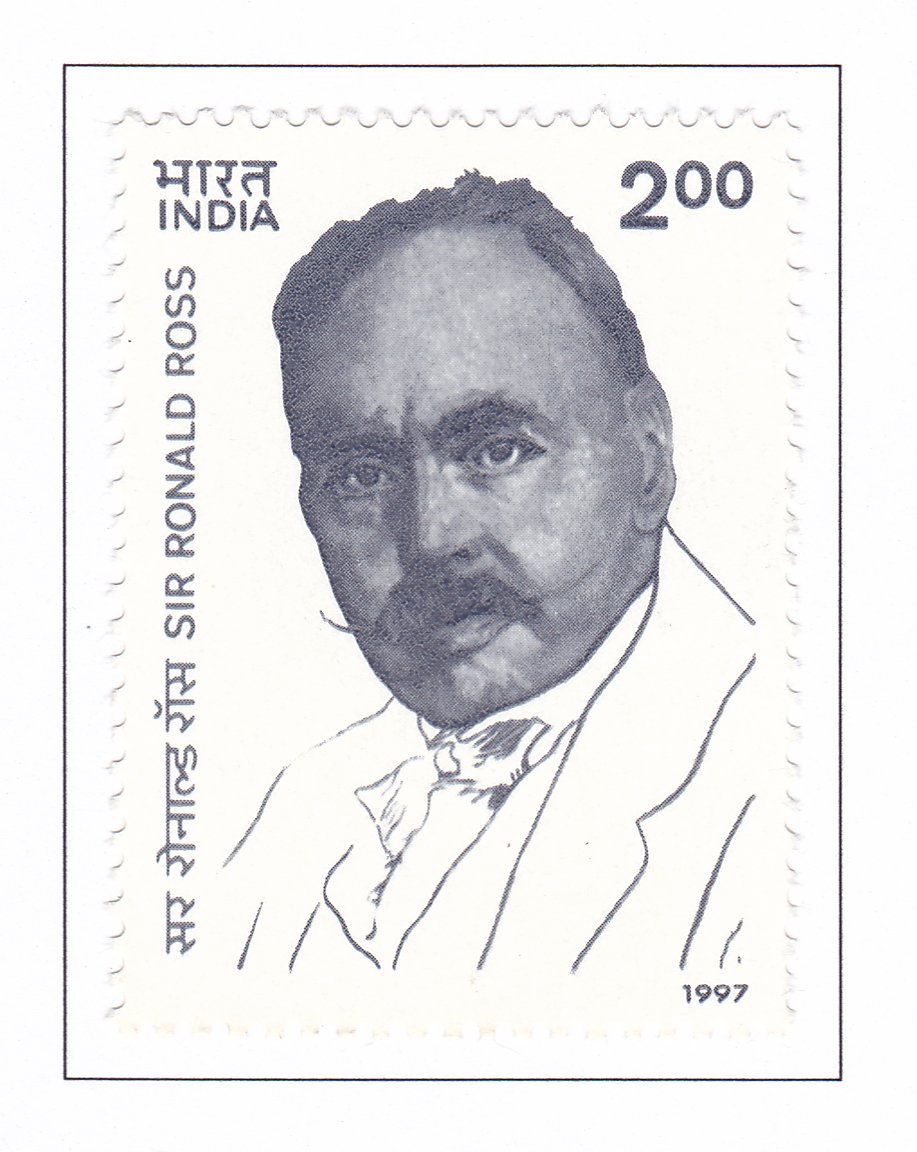Sir Ronald Ross

Technical Data
| Date of Issue | August 20, 1997 |
|---|---|
| Denomination | Rs. 2 |
| Quantity | 400,000 |
| Perforation | comb 13 x 13½ |
| Printer | Security Printing Press, Nashik |
| Watermark | No Watermark |
| Colors | Slate |
| Catalog Codes |
Michel IN 1564 Stamp Number IN 1615 Yvert et Tellier IN 1335 Stanley Gibbons IN 1728 |
| Themes | Anniversaries and Jubilees | Famous people | Healthcare | Nobel Laureates | Scientists |
Table of Contents
Centenary of the Discovery of the Malaria Parasite
Early Life and Education
Sir Ronald Ross was born on 13th May 1857 in Almora, Uttar Pradesh, India, to Sir Campbell Ross, a General in the British Army. After his schooling in England, Ross pursued medical studies at St. Bartholomew’s Hospital in the UK. In 1879, he became a Member of the Royal College of Surgeons and joined the Indian Medical Service in 1881, where he specialized in tropical diseases and bacteriology.
Groundbreaking Discovery in Malaria Research
Inspired by Sir Patrick Manson, a renowned expert in tropical medicine, Ross embarked on research to uncover the transmission process of malaria. His pivotal discovery occurred on 20th August 1897 in a small laboratory in Secunderabad, Andhra Pradesh, where he identified the pigmented oocysts of the malaria parasite in the anopheles mosquito. This discovery confirmed that mosquitoes were responsible for the transmission of malaria, solving one of the greatest puzzles in tropical medicine.
Ross’s work was groundbreaking; he was the first to:
- Use parasite counting to assess malaria infection intensity.
- Lay the foundation for studying malarial communities.
- Highlight the importance of the ‘average enlarged spleen’ in malaria studies.
- Develop the ‘thick film’ technique, now widely used in malaria diagnosis.
Recognition and Legacy
Ross’s contributions were widely recognized. In 1901, he was elected a Fellow of the Royal Society, and in 1902, he was awarded the Nobel Prize in Medicine. He was knighted in 1911 and served as the editor of Science Progress from 1913 until his death in 1932.
Commemoration
To honor 100 years of Ross’s discovery, the Indian Society of Parasitology hosted the II-Global Meet on Parasitic Diseases from 18-22 August 1997 in Secunderabad, the city where Ross made his momentous discovery. The Department of Posts issued a special postage stamp to pay homage to Sir Ronald Ross, commemorating his extraordinary contribution to the understanding and control of malaria, a discovery that continues to save millions of lives worldwide.
This stamp celebrates the legacy of Sir Ronald Ross, a figure whose work has had a lasting impact on public health and medicine, particularly in tropical regions. His discovery remains a cornerstone in the ongoing battle against malaria, cementing his place as one of the great figures in medical history.
